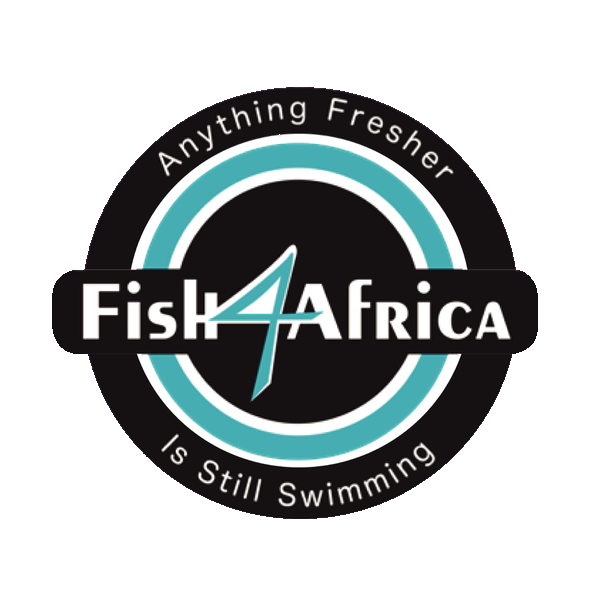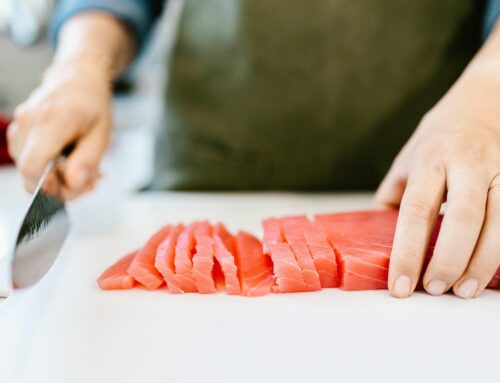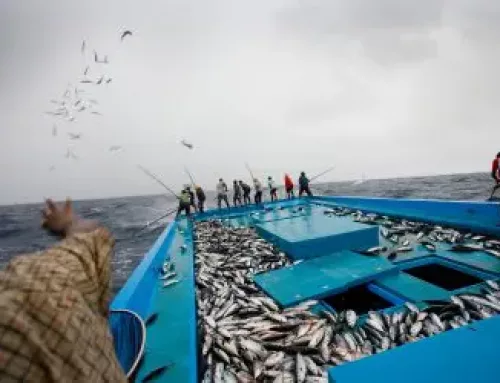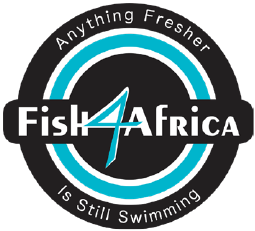Fish is an important source of protein, omega-3 fatty acids, and other essential nutrients. However, overfishing and unsustainable fishing practices have caused many fish populations to decline, leading to concerns about the impact of fishing on the environment and the future of seafood consumption. As a result, many people are now attempting to eat fish with a conscience, which means being mindful of the impact of their choices on the environment and the sustainability of fish stocks.
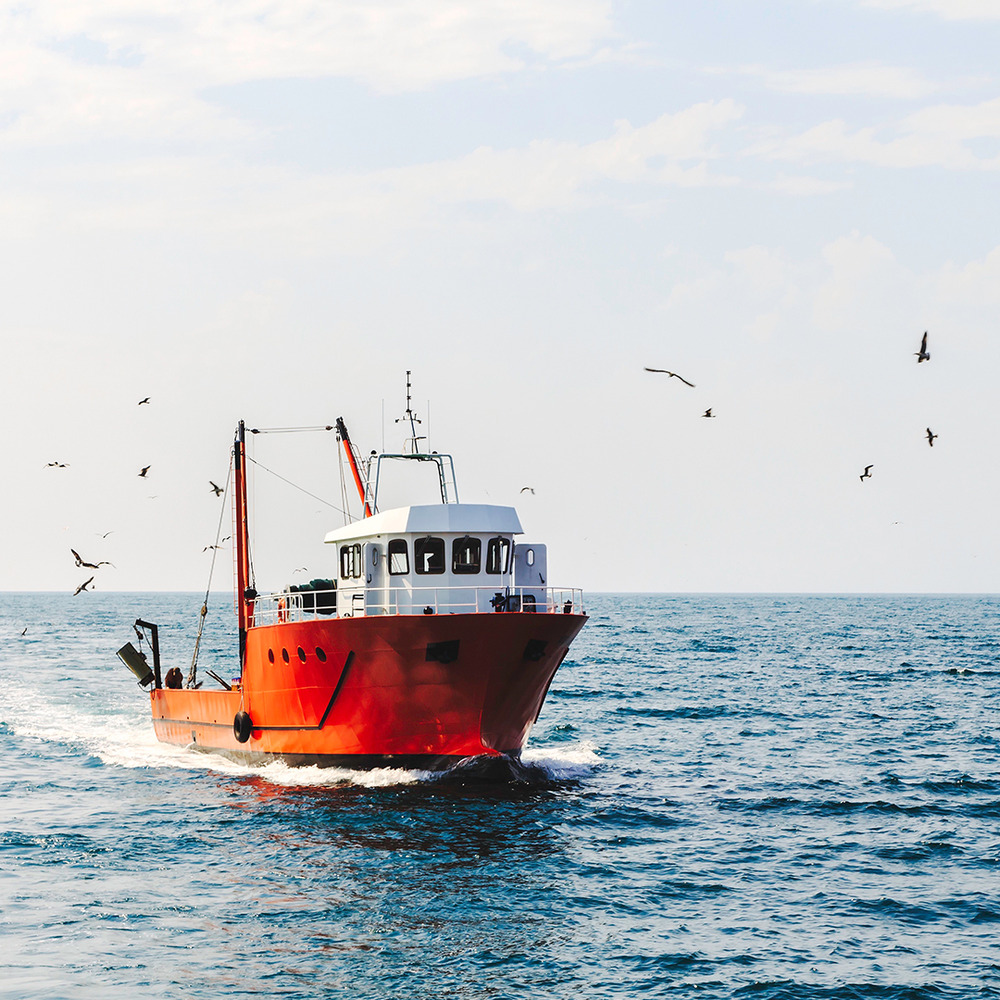
One of the most important things to consider when eating fish with a conscience is the source of the fish. It’s essential to choose fish that has been caught using sustainable fishing practices – such as line fishing. Sustainable fishing likewise ensures that fishermen can continue to make a living from fishing in the long run, rather than depleting fish stocks and damaging the industry.
Let’s take a look at some of the dangers associated with unsustainable fishing practices, and what to look out for on your path to eating fish with a conscience. This includes helpful tips on how to purchase sustainably sourced fish, as well as information from our Fish4Africa family on the ways in which we contribute to sustainable fishing.
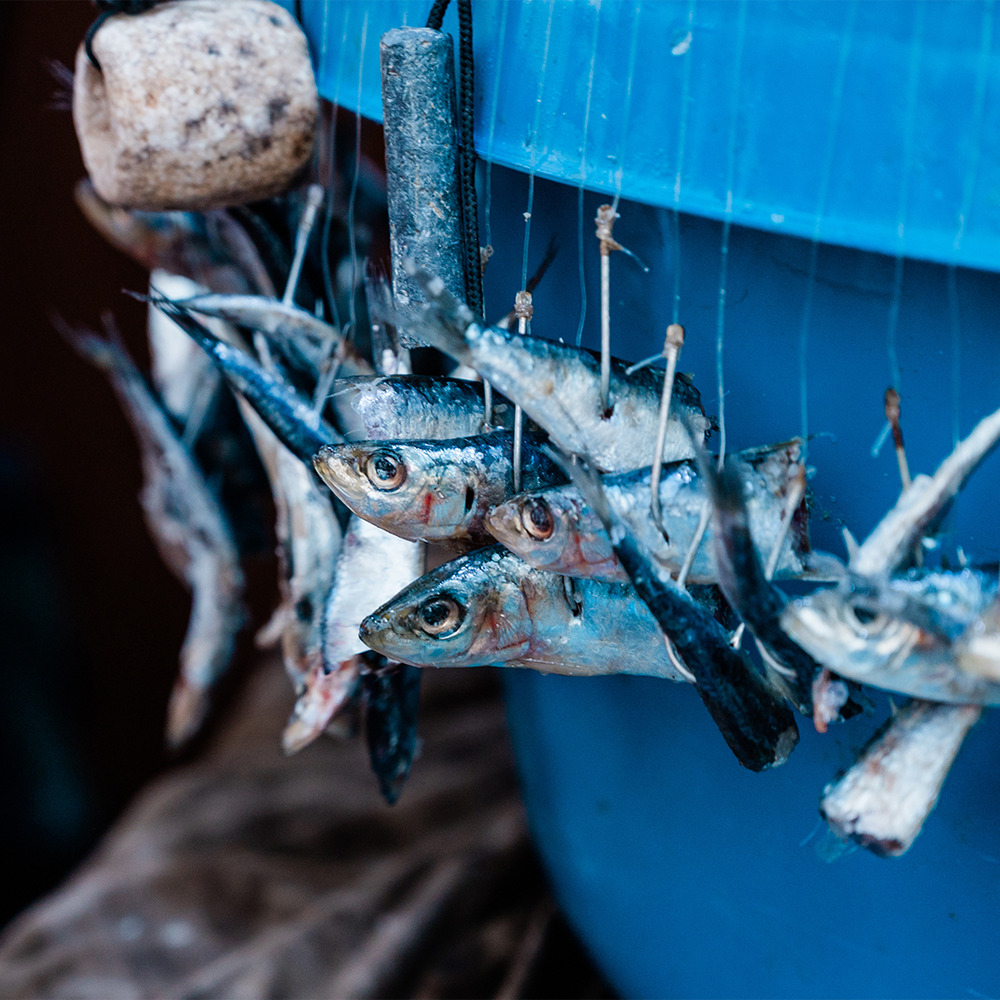
What is Overfishing?
To eat fish with a conscience, it’s important to consider the type of fish you’re eating as some species of fish are more vulnerable to overfishing than others. Choosing fish that are in season and are not overfished is crucial to protecting marine biodiversity. Some fish, such as cod and bluefin tuna, are now endangered or at risk of extinction due to unsustainable fishing practices, so avoiding them altogether is the best way to ensure their survival.
When the rate of fish removal from the ocean exceeds the rate of fish reproduction and population replenishment, overfishing occurs. This can happen for several reasons, the most common of which are the use of unsustainable fishing techniques such as gillnetting, the targeting of high-value species (like cod and bluefin tuna, for example), and the lack of effective fisheries management.
Overfishing has major repercussions for marine ecosystems and the people who rely on fish for sustenance and a living. In fact, it’s a significant threat that can result in the collapse of fish populations, the loss of biodiversity, and the disruption of marine ecosystems if we are not careful, all of which can have far-reaching consequences on the health of our oceans and the planet as a whole. Fortunately, there are ways in which you can help to support sustainable fishing, which can work to counteract the dangers of overfishing.
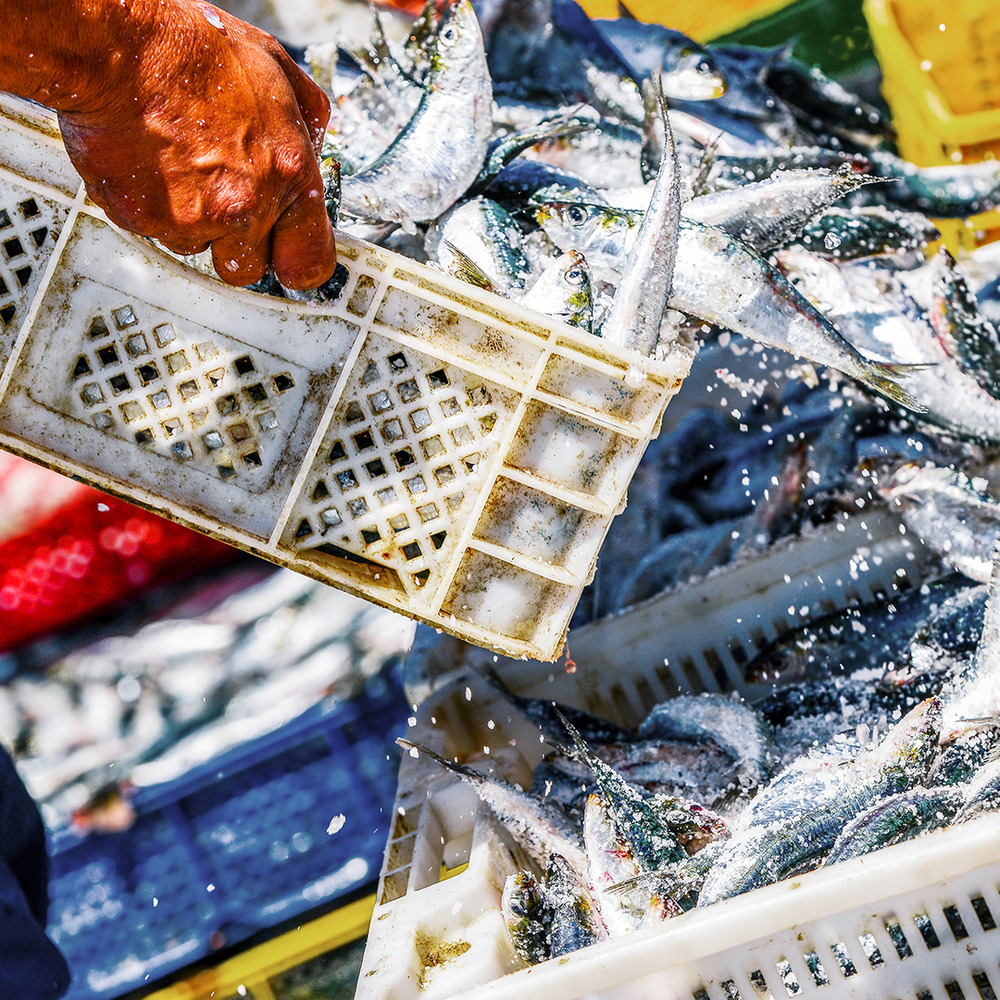
Fish4Africa is pleased to partner with the South African Hake Longline Association (SAHLLA) and to be a member of industry bodies that aim to interact, advocate and protect the interest of the Hake Long Line and Tuna Pole Fishery (protected by The South African Tuna Association) and Rights Holders. Fish4Africa is also a proud member of Proudly South Africa, Birdlife SA, South African Tuna Association (SATA) and SECIFA, all of which support sustainable fishing practices.
What is Sustainable Fishing?
Sustainable fishing aims to keep fish populations at healthy levels while causing the least amount of damage to the marine ecosystem. It involves using fishing methods that protect the marine environment and fish populations, ensuring the fishery’s long-term survival. Sustainably sourced fish is defined as fish caught or farmed via methods that do not harm the environment or diminish fish populations.
In simple terms, the fish are caught or raised in a way that permits reproduction and population stability without endangering the local ecosystem or other marine life. And by adopting sustainable fishing practices, we can ensure that we have enough fish for future generations while simultaneously protecting the marine environment.
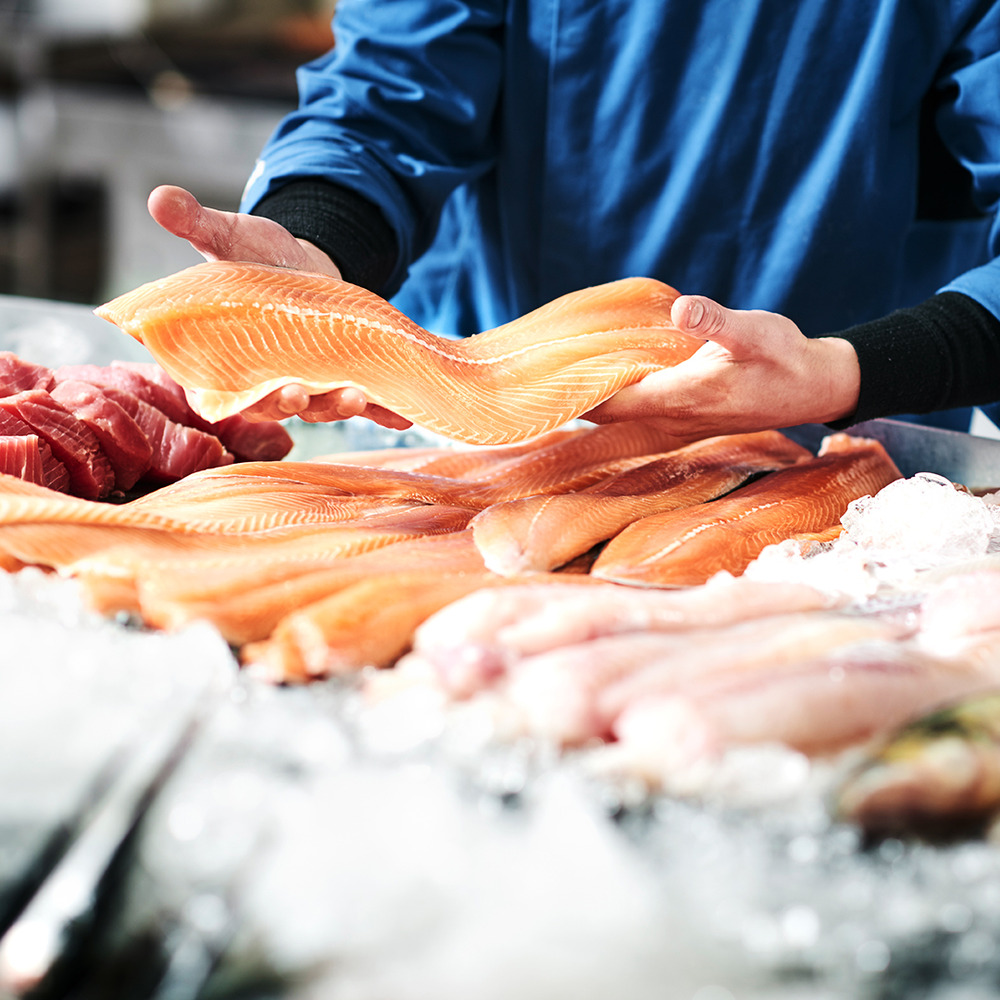
Sustainable fishing practices implemented by DEFF include:
- Fishing quotas. Limiting the quantity of fish that can be caught in order to avoid overfishing.
- Gear modifications. Making use of fishing equipment that avoids bycatch and has a minimal impact on the marine environment.
- Closed areas. Rendering specific locations off-limits to fishing in order to allow fish populations to recover.
- Seasonal restrictions. Establishing fishing seasons to avoid catching fish during their reproductive season.
- Size limits. Setting minimum size restrictions for fish to allow them to reach reproductive maturity before being caught.
Some of the factors that influence how sustainably fish is supplied are fishing or farming methods, fisheries management processes, and the overall environmental effect of the activity. Fish and other seafood that comply with these methods and processes can be certified as sustainably sourced by organisations like the SAHLLA, SATA, and SECIFA which set the standard for sustainable fishing and farming methods.
How to Purchase Sustainably Sourced Fish
If you would like to help ensure that the fish you purchase does not contribute to overfishing and does not harm the marine environment, here are some tips on how to purchase sustainably sourced fish:
- Look for certification labels. Consider purchasing fish that has received certifications from internationally recognised organisations. These certifications guarantee that the fish was captured or raised ethically and sustainably while also adhering to fish traceability regulations.
- Avoid overfished species. For a list of overfished species to stay away from, contact the South African Sustainable Seafood Initiative (SASSI) or groups of a similar nature. This can help you to make more informed decisions about which types of fish or seafood to buy.
- Support local fisheries. Opting to purchase fish or seafood that is locally sourced can lessen the negative effects of shipping and transportation on the environment. Local fish or seafood might also be fresher and tastier!
- Consider the season. Some fish species are only available at certain times of the year. Selecting seasonal fish or seafood can promote sustainable fishing methods and guarantee that the fish you purchase is of the highest grade.
- Know your fishing methods. Several fishing techniques can affect the environment and non-targeted species.
- Paperwork – permits for fish sold
By following these guidelines, you can help to conserve our oceans and marine ecosystems while also making more informed decisions about the fish and seafood you eat.
Consuming Fish That Follows Traceability Policies
Traceability and sustainable fishing work together in preserving the habitat of fish, focusing on the quantity of fish caught in the ocean, and monitoring the route of fish from the moment of capture or harvest to the point of consumption. Traceability in particular includes documenting the fish’s species, where and how it was caught, and who handled it throughout the supply chain.
These strategies, when combined, are critical for ensuring the long-term survival of fish populations, safeguarding marine ecosystems, and promoting ethical fishing methods. By being knowledgeable about where and how their fish are caught, consumers can make informed decisions about the seafood they purchase and hold fishing companies accountable for their impact on the environment.
Fish4Africa works with several organisations dedicated to ensuring that only high-quality, traceable fish is taken from the sea, with the preservation of the marine ecosystem as their primary goal. Our family-owned and operated business is committed to integrating our ideals into our business environment and prioritising the health of our valued customers in a sustainable and traceable manner.
At Fish4Africa, we respect our relationships with each of the fishermen, establishing an understanding of how we can assist each of them in improving the traceability and sustainability of their fishing operations. Don’t just take our word for it, though, have a look at the ways in which we strive to be both sustainable and traceable!
How We Strive to Be Sustainable and Traceable
As previously stated, Fish4Africa has partnered with a number of organisations (for example, Proudly South Africa, Birdlife SA, SAHLLA, SATA, and SECIFA) whose primary aim is to protect marine resources as part of their commitment to maintaining the ocean’s biodiversity. As a result, processes have been put in place to ensure that our customers can purchase sustainable and traceable fish and seafood.
These sustainable fishing methods allow us at Fish4Africa to change our menu based on what fish and/or seafood is in season and include species such as Red Roman, Cape Salmon, Kabeljou, Angel Fish, Norwegian Salmon, Hake, Sole, Tuna, Butterfish, Yellowtail, Fresh Mussels, along with a variety of frozen goods such as Crayfish, Crab, and Calamari, among others.
It’s important to take care of your body by remaining healthy and, more importantly, paying attention to what you eat. The Fish4Africa family believes strongly in eating with a conscience, and we maintain that anyone can help to keep these practices alive if they put in the effort to do so.
Supporting sustainable and traceable fish and seafood suppliers, such as Fish4Africa, is a great way to ensure that future generations can also enjoy fish that is delicious and nutritious. Enjoy a meal made with sustainably sourced fish and be a part of the generation that protects our marine ecosystem.
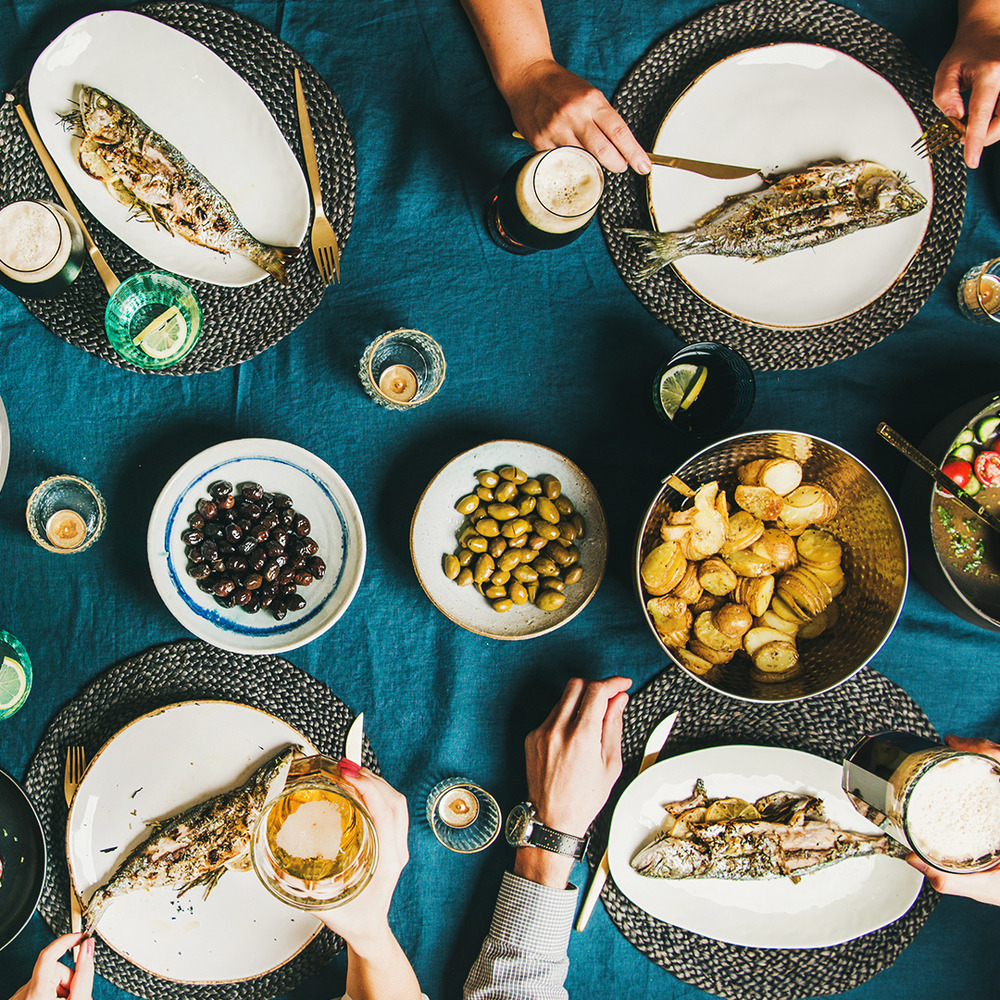
Our Final Thoughts
Eating fish with a conscience means considering the environmental effect of our decisions as well as the future of fish populations. We can all help to preserve marine biodiversity and guarantee a sustainable future for seafood consumption by choosing sustainable and responsible sources of fish, considering the type of fish we eat, and being careful of how the fish is prepared and consumed.
Fish4Africa believes that eating fish with a conscience is not only beneficial for the environment, but also contributes to sustainable fishing techniques and guarantees that future generations may continue to benefit from the health benefits of seafood.
Purchase our fish and seafood products, and join the Fish4Africa family today!
